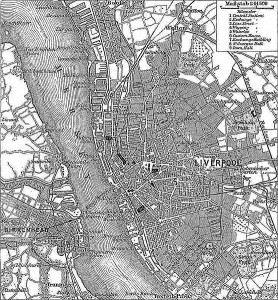From The New-York Times November 16, 1861:
AMERICAN POLITICAL SPIES IN ENGLAND.; THE GRIEVANCE NOT TO BE BORNE.
From the Liverpool Mercury.
We had hitherto supposed that Russia was the chief country where political espionage was recognized as an institution, and where this branch of business was attended to so completely that the breathings at the domestic hearth, as well as the discourse in public places, were diligently caught up and reported by some concealed listener, or by some spy who assumed the more familiar shape of a bosom friend. But it seems that a system little less oppressive and all-pervading is actually being adopted in Liverpool by the agents of the United States Government with regard to the sayings and doings of residents who are supposed to have Secessionist predilections, or who may be directly or indirectly connected with the South. We heard the other day, upon excellent authority, that one of the members of an influential Liverpool firm is watched as systematically and tenaciously as if he were known to be hatching some infernal machine which would annihilate President LINCOLN and his whole Cabinet at one blast. A mysterious stranger, in the person of a “private detective,” is ever on his truck. “The gentleman cannot leave his office but this odious “double” is seen shuffling about the doorway. Whether he walks, rides or visits, he is sure at some turn to encounter the same tormenting and scrutinizing gaze. At home he is not safe; for, when he imagines himself snug with his family his demon may be noticed peering in at the window or hovering about the threshold until the victim reappears, once more to undergo the daily round of dogging and hunting, and as evening approaches he is again “earthed” at home. Nor is this all. It is reported that the domestics of the gentleman alluded to have been waylaid, and questioned as to his habits and operations; while it is stated that in his case, as in the case also of other “suspected” persons and firms, goods concerned from the manufacturing districts have been opened on their transit to Liverpool, inspected, and their contents duly noted and reported. In order to show the extent to which these proceedings are carried on, as well as their vindictive character, we may mention that several friends of the merchant in question, and others, have been reported as passengers by a particular steamer, and, on their arrival at New-York and Boston, have been searched, and in some instances imprisoned. Where these things are known — and during the last few days they have been the theme of much remark in mercantile circles — they have excited general surprise and indignation; these feelings having been manifested quite irrespective of the general views entertained with regard to the imbroglio now convulsing the States; for it is believed that such proceedings are entirely opposed to that freedom which British subjects have a right to claim, and that they are calculated only to engender a spirit of contempt and animosity towards the Northern authorities. We might say more, but sufficient has been said to indicate the course of espionage which is being pursued, and to draw attention to it in quarters whence probably some address may be obtained.
From the London Herald.
There is one thing that must be done, and done at any hazard. American spies must be put down in England. It is intolerable that the Liverpool Exchange should be infested with New-York and Washington detectives in plain clothes; that in Liverpool dining-rooms and bar-rooms and counting-rooms, Englishmen must be careful what they say about the Federal or Confederate States, lest they compromise some one or other, or open Fort Lafayette to their business partners in New-York or elsewhere. There, however, the evil is not said to stop, for goods in transitu are alleged to have been tampered with by unknown hands for fear they should be contraband. Such practices cannot be allowed in this country, and their prevention on board English steamers should also, as far as possible, be suppressed. In the way of suppression at sea the difficulties, of course, are great, for the retention on board an English steamer in New-York of an American spy, would convulse the Northern States, and possibly occasion war. Nor, we confess, will suppression be without difficulties on the land; for what are we to make of suspicions characters who follow people and thrust themselves into situations that they may hear what is said? Perhaps representation to the Federal Government by Earl RUSSELL would be the best and only course to take; and it is inconceivable that the Federal Government would persist in this refined mode of trapping on its attention being called to the inconvenience and abuse. Whatever the course taken the practice must be put down, for it is at variance with our laws and with the spirit of the constitutional government under which we live.
Well, a members of the Maury family was living in Liverpool at this time.
You can read about “When Liverpool Went Dixie” at the BBC. The U.S. Consul to Liverpool, Thomas Haines Dudley had a book written about him: Lincoln’s spymaster: Thomas Haines Dudley and the Liverpool network.

